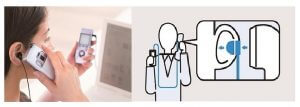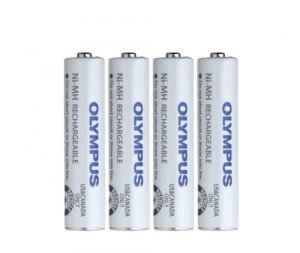Tips for Recording Telephone Interviews
Recording phone interviews can be a tricky business, but by following a few simple tips on the best way to record phone interviews and tweaking some of the things you are doing, you can get much better audio quality for playback and transcription.
Typically telephone interviews are conducted for a variety of reasons, including for research, insurance claims, medical investigation and legal matters. Avoid the embarrassment of calling back your interviewee due to poor audio or drop outs – it is important to give yourself as much chance of getting good quality audio as is humanly possible. Continue reading to learn the best way to record phone interviews and make recording phone interviews a breeze in the future.
So what’s the best way to record phone interviews?
1. Interview location
Firstly, when recording phone interviews, think about both the locations being used – is the person at the other end of the line in a noisy office or exposed to high traffic or other interfering background noise? If possible, make sure the person you are interviewing is in an enclosed, calm, quiet space, with as little opportunity for interruptions as possible. A smaller room is better than a larger room as there is less likelihood for sound echoes. Even if they are not in a noticeably noisy environment, make sure the room they are in doesn’t have humming or droning appliances or other equipment. If so, turn them off where possible. Have they got a glass of water at hand? Encourage them to get themselves as comfortable as possible. And of course make sure you are also in a suitable space where there will be minimal interruptions, and where you have all the equipment you need, readily at hand.
2. Landline, mobile or VoIP?
Secondly, what audio device is the person you are interviewing using? Is it a mobile phone, landline, or are they utilising computer-operated VoIP technology, like Skype? The best way to record phone interviews will vary depending on your answer.

3. I don’t have a landline. Can I use a mobile phone while also recording phone interviews?
You can use a mobile phone if you have a telephone pickup microphone, but otherwise it is to be avoided. The tiny microphone in the mobile phone picks up high frequency sounds which you can’t hear at the time, but which are recorded and makes transcription of your interview much harder. So if you or your interviewee are using a mobile phone, make sure you are also using a telephone pick up microphone as the best way to record phone interviews on mobile, like the Olympus TP-8, above, which captures both sides of the conversation for recording and is an inexpensive solution to low quality audio.
4. What about VoIP and recording phone interviews? Is the sound quality good enough?
VoIP technology like Skype is great and inexpensive initially, but it is sometimes difficult to get good quality audio with basic equipment as the audio quality can vary greatly, minute to minute, as internet drops in and out. If you are planning on conducting a large volume of interviews, it is worth considering purchasing a good quality microphone. For recording meetings or interviews with a number of people utilising VoIP technology we recommend Acoustic Magic’s Array Microphone, the VoiceTracker II, which is ideal for this use. But if you are not looking to invest hundreds of dollars in good quality microphones, then consider alternatives to VoIP for interview recording.
5.What recording device should I use as the best way to record phone interviews?
Have you got your recording device at hand? There are a huge variety of dictation recording devices on the market, and we would recommend you look for a device which is at a minimum at the quality of the Olympus WS series, anything below that (such as the VN series) lacks the functionality and recording quality and is impractical for transcription purposes. Consider the Olympus or Philips digital recorders or Olympus or Philips recording small groups bundles, which combine a small digital voice recorder with small and unobtrusive boundary layer microphone/s, all available at a really affordable price and providing great audio capture.

And remember, speak slowly and clearly, don’t talk over the person you are interviewing (besides being distracting and sometimes confusing, it is also harder for transcriptionists to accurately record the conversation), keep movement around the room to a minimum, and be prepared!
If you follow all these little tips, you will be well on your way to the best way to record phone interviews and capturing crystal clear audio for interviews via telephone!
Do you need more help with the best way to record phone interviews? Get in touch with us at Pacific Transcription and ask about our interview transcription and online call recording services. Get in touch online or call us on 1300 662 173 to get started.




